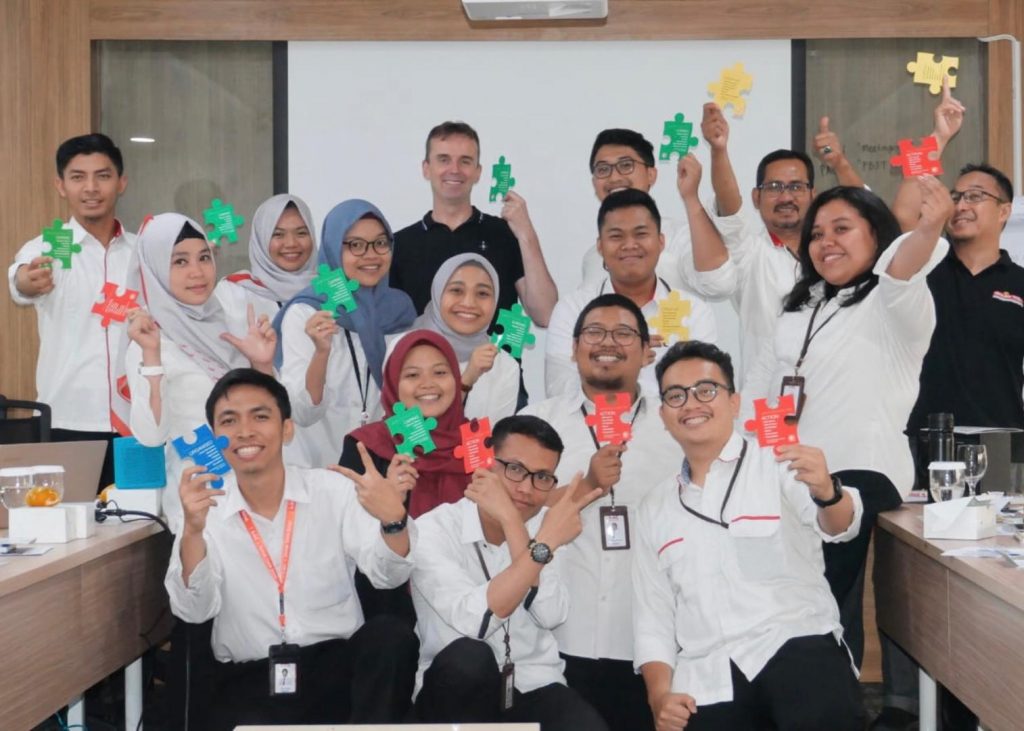‘My manager has no people skills!’

How many times have you heard that? Or even say that yourself? It’s a common complaint that you might hope would be lessening, given that traditional ‘rule with a stick’ management approaches have all but died out.
Few people at the top of businesses in the UK are unaware that people skills in managerial positions cannot be overstated; however, though they may know this, they don’t tend to act and instead leave their managers to get on with it. If the bottom line is doing okay, company bosses and boards are reluctant to change the status quo for fear of everything going pear-shaped; it’s easier to turn a blind eye when they have so many things to concentrate on.
This leaves managers free to micro-manage their staff, stamping out any employee autonomy. It enables them to favour individual team members and exercise the age-old ‘face fits’ practice, which negatively impacts the rest of the team. It leaves them to delegate as much work as possible, with no need to set an example, as tasks will always get done by their long-suffering subordinates. It also enables them to remain detached from their team or department, to be unaware of what’s happening from day to day, and to not know or care about the issues the front-line staff faces. And finally, it can lead to managers being unapproachable when problems crop up.
Statistics show that having an effective leader with great people skills and the correct approach can actually improve a company’s bottom line. It’s worth any upheaval—to ensure the people managing your business are doing it to the best of their ability and making an incredibly positive impact on the people they lead.

Today’s leaders need to be able to engage, inspire and motivate their people to achieve great things, whilst navigating the ever-changing environment. Developing leadership skills and abilities has never been more important. Leaders also need to make meaningful relationships with colleagues, clients, and stakeholders. Unfortunately, in many cases, people are promoted into leadership roles because they excel in their field of expertise; however, this does not mean they have the right people skills and the levels of self-awareness required to be an emotionally intelligent leader.
The Chartered Institute of Personnel and Development (CIPD) recently published a report on the importance of people management in the workplace. The report found that poor management has a negative impact on employees’ mental health. Workers with the lowest-rated managers were also more likely to experience excessive work pressure than those with the best managers. This highlights the importance of managers being able to recognise when employees are struggling so that they can offer appropriate support. The most productive, beneficial company cultures foster an environment where employees feel comfortable discussing any issues they may be facing. In the current economic climate, and as more and more jobs are automated or impacted by AI each year, some real worries are bubbling under the surface in most companies.
Paula Leach, founder of leadership consultancy Vantage Points Consulting, highlighted the importance of managers and leaders being able to deepen their understanding and capability to lead humans well, focusing on human characteristics and behaviours. She suggests that HR departments can underpin the approaches of these leaders. HR can use data to identify issues with management, such as mental health absence data and triangulate it with other information—such as broader absence, retention of employees, and grievances—to identify patterns.
Developing people skills requires a combination of training, practice, and feedback. Managers should be trained to spot the signs of mental health problems at work. Effective leadership also requires high levels of emotional intelligence, which includes self-awareness, self-regulation, motivation, empathy, and social skills. Emotionally intelligent leaders are able to understand and regulate their own emotions, as well as the emotions of those around them. This allows them to respond appropriately in different situations, whether this means providing support during a difficult time or motivating employees to achieve their goals.

Improving self-awareness involves leaders recognising and understanding their own emotions, strengths, weaknesses, and triggers. They should also be open to feedback from their colleagues and be willing to make changes to their behaviour and leadership approach. This requires a growth mindset, which is the belief that skills and abilities should constantly evolve. In addition to self-awareness, emotionally intelligent leaders should also develop their empathy and communication skills. This means being able to understand and share the feelings of others. This allows managers to connect with their employees on a deeper level.
In recent years, there has been a shift towards recognising the impact that work can have on an employee’s mental health and well-being. Companies are now expected to take steps to support their employees in this area. The pandemic brought the issue of employee well-being to the forefront, after many employees struggled to adapt to remote work and the change of routine, which increased their stress and anxiety. Managers have also had to adapt their leadership approach, to still effectively support and steer staff when they’re not physically in front of them. It’s clear that remote working practices are only going to increase, so engaging, motivating and inspiring staff are things managers should be able to do as the bare minimum.
Can you confidently say your leaders and manager can do this? Do staff surveys underpin this belief? Does your staff retention rate and your company’s ability to hire new people tell another story?
The Jigsaw Discovery Tool is designed for leaders at all levels of an organisation, whether they’re experienced in their role and would like to understand more about how their actions and behaviours impact the people around them, or they’re a new/aspiring leader who would like to find out how to get the best from their staff. The tool gives leaders the space to challenge themselves, to reflect on their own strengths and leadership approach, in order to identify areas for development.
Call 01924 898930 for more information, or visit https://jigsawdiscoverytool.com/leadership-development/ for more information.
'My manager has no people skills!'
The Jigsaw Discovery Tool can help leaders develop great people skills. For more information, call 01924 898930 or email hello@Jigsawdiscoverytool.com




